
The Hidden Gem of Pagudpud
Pagudpud, located in the northernmost tip of Luzon Island in the Philippines, is a serene paradise known for its pristine beaches, clear blue waters, and lush landscapes. Often referred to as the 'Boracay of the North,' Pagudpud offers a tranquil escape from the hustle and bustle of city life, making it an ideal destination for those seeking relaxation and natural beauty. The main attraction of Pagudpud is its stunning beaches. Saud Beach, with its powdery white sand and swaying coconut palms, is perfect for swimming and sunbathing. For those who love adventure, Blue Lagoon offers exhilarating activities such as surfing and snorkeling. The crystal-clear waters and vibrant marine life make it a haven for underwater enthusiasts. Beyond the beaches, Pagudpud boasts several natural wonders. The Patapat Viaduct, a coastal bridge offering breathtaking views of the West Philippine Sea, is a must-visit. Travelers can also explore the spectacular Kabigan Falls, a scenic waterfall nestled in lush greenery. For a unique experience, visit the Bangui Windmills, the first power-generating windmill farm in Southeast Asia, which provides a picturesque backdrop for photography. Pagudpud's rich cultural heritage is another highlight. The town is home to traditional Ilocano cuisine, with local delicacies such as 'bagnet' (crispy pork belly) and 'pinakbet' (vegetable stew) that are a must-try. Friendly locals and a laid-back atmosphere further enhance the charm of this hidden gem, making every visit to Pagudpud a memorable one.
Local tips in Pagudpud
- Visit during the dry season (November to April) for the best weather and outdoor activities.
- Bring cash as ATMs are limited in the area.
- Rent a tricycle or motorbike to easily explore the town and its surroundings.
- Try the local Ilocano dishes at small eateries for an authentic culinary experience.
- Pack eco-friendly sunscreen to protect the marine life while enjoying the beaches.
The Hidden Gem of Pagudpud
Pagudpud, located in the northernmost tip of Luzon Island in the Philippines, is a serene paradise known for its pristine beaches, clear blue waters, and lush landscapes. Often referred to as the 'Boracay of the North,' Pagudpud offers a tranquil escape from the hustle and bustle of city life, making it an ideal destination for those seeking relaxation and natural beauty. The main attraction of Pagudpud is its stunning beaches. Saud Beach, with its powdery white sand and swaying coconut palms, is perfect for swimming and sunbathing. For those who love adventure, Blue Lagoon offers exhilarating activities such as surfing and snorkeling. The crystal-clear waters and vibrant marine life make it a haven for underwater enthusiasts. Beyond the beaches, Pagudpud boasts several natural wonders. The Patapat Viaduct, a coastal bridge offering breathtaking views of the West Philippine Sea, is a must-visit. Travelers can also explore the spectacular Kabigan Falls, a scenic waterfall nestled in lush greenery. For a unique experience, visit the Bangui Windmills, the first power-generating windmill farm in Southeast Asia, which provides a picturesque backdrop for photography. Pagudpud's rich cultural heritage is another highlight. The town is home to traditional Ilocano cuisine, with local delicacies such as 'bagnet' (crispy pork belly) and 'pinakbet' (vegetable stew) that are a must-try. Friendly locals and a laid-back atmosphere further enhance the charm of this hidden gem, making every visit to Pagudpud a memorable one.
When is the best time to go to Pagudpud?
Iconic landmarks you can’t miss
Patapat Viaduct
Experience the breathtaking beauty of Patapat Viaduct, a scenic bridge in Ilocos Norte offering stunning coastal views and cultural immersion.
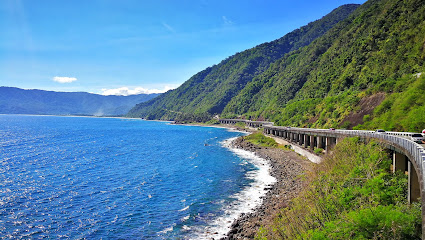
Bantay Abot Cave
Explore Bantay Abot Cave in Pagudpud, a stunning natural attraction featuring unique rock formations and breathtaking coastal views.
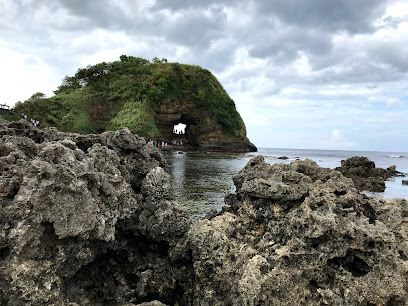
Saud Beach
Experience the serene beauty of Saud Beach in Pagudpud, a perfect destination for relaxation, adventure, and unforgettable tropical memories.
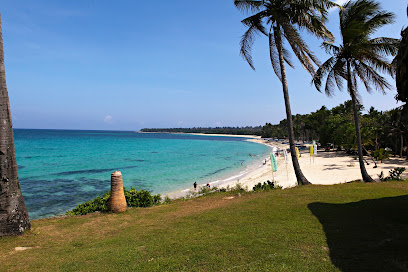
Casa Victoria
Discover the tranquility of Casa Victoria, a resort hotel in Pagudpud, where stunning beaches and relaxing escapes await every traveler.

Palm Grove Saud Holiday Complex
Experience the serene beauty and local culture at Palm Grove Saud Holiday Complex, a tranquil resort hotel in Pagudpud, Ilocos Norte.
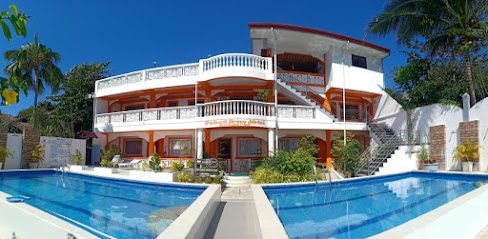
Casa Consuelo
Experience the beauty and tranquility of Casa Consuelo, a premier resort hotel in Pagudpud, where stunning beaches meet exceptional hospitality.
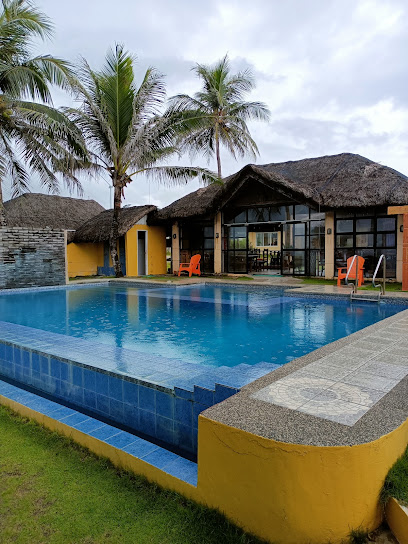
Kingfisher Resort
Experience the beauty of Pagudpud at Kingfisher Resort, where relaxation meets adventure in a tropical paradise.

Municipal Beach Park
Experience the tranquility and natural beauty of Municipal Beach Park, a top tourist attraction in Pagudpud, Ilocos Norte, perfect for relaxation and adventure.
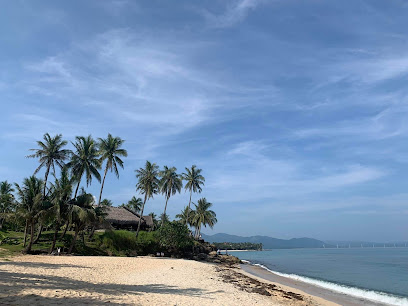
Villa Andrea Beach Resort Pagudpud
Experience the serene beauty of Villa Andrea Beach Resort Pagudpud, where stunning beaches meet comfortable accommodations in Ilocos Norte.
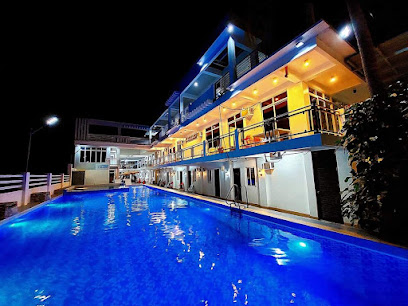
Polaris Beach Resort
Discover the tranquility and beauty of Polaris Beach Resort in Pagudpud, a perfect blend of relaxation and adventure in the heart of Ilocos Norte.

Caunayan Point (Little Batanes of the North)
Explore the breathtaking landscapes of Caunayan Point, the serene 'Little Batanes of the North' in Pagudpud, Ilocos Norte, a perfect escape into nature.
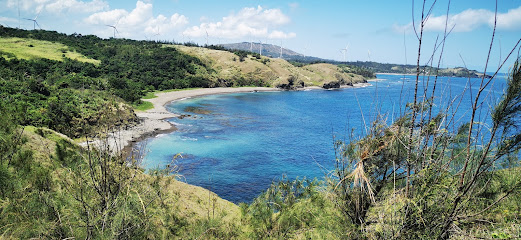
Natsuca Beach Resort in Pagudpud
Experience the beauty of Pagudpud at Natsuca Beach Resort, a serene escape with stunning beaches, warm hospitality, and diverse activities for every traveler.

Jun & Carol Beach Resort
Experience the serene beauty of Pagudpud at Jun & Carol Beach Resort, your perfect getaway for relaxation and adventure in Ilocos Norte.

Paraiso Ni Anton
Explore the serene landscapes and rich cultural heritage at Paraiso Ni Anton, a must-see tourist attraction in Pagudpud, Ilocos Norte.
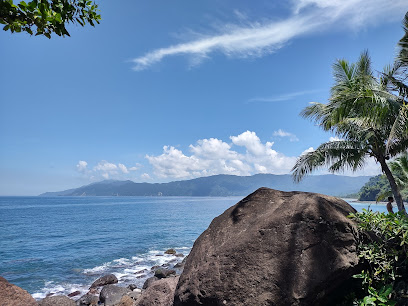
Evangeline Beach Resort
Discover the beauty of Pagudpud at Evangeline Beach Resort, where relaxation meets adventure in a tropical paradise.
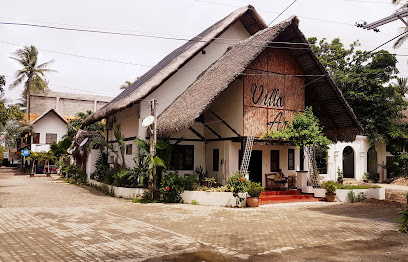
Unmissable attractions to see
Kapurpurawan Rock Formation
Explore the breathtaking Kapurpurawan Rock Formation, a stunning coastal gem in Burgos, Ilocos Norte, featuring unique limestone formations.
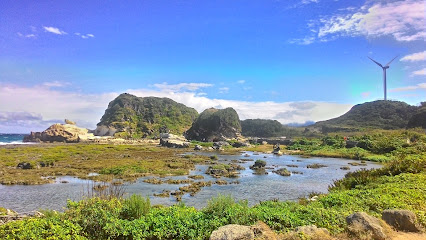
Patapat Viaduct
Experience the breathtaking views and architectural beauty of Patapat Viaduct, a must-visit landmark in Pagudpud, Ilocos Norte.
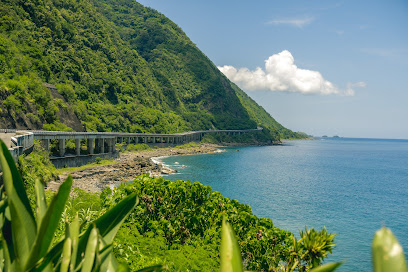
Bantay Abot Cave
Explore Bantay Abot Cave in Pagudpud – a breathtaking natural attraction with stunning rock formations and scenic coastal views, perfect for nature lovers.
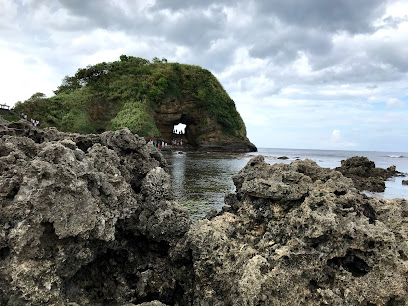
Saud Beach
Discover the serene beauty of Saud Beach in Pagudpud, Ilocos Norte – a hidden gem perfect for relaxation and adventure amidst nature's splendor.
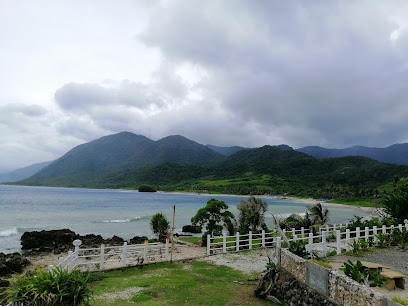
Municipal Beach Park
Discover the serene beauty of Municipal Beach Park in Pagudpud, where soft sands and vibrant waters create an unforgettable tropical escape.
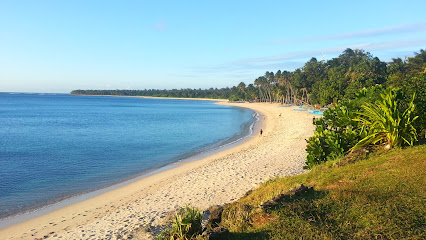
Caunayan Point (Little Batanes of the North)
Discover the breathtaking landscapes of Caunayan Point, a hidden gem in Pagudpud, offering stunning views and a peaceful escape into nature.
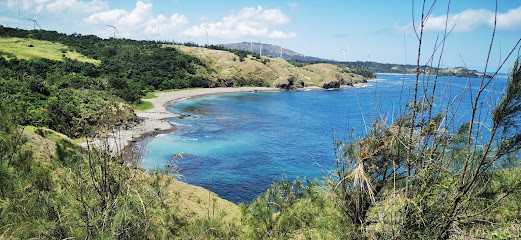
Paraiso Ni Anton
Experience the breathtaking beauty of Paraiso Ni Anton in Pagudpud, a serene tourist attraction perfect for relaxation and adventure in nature's embrace.
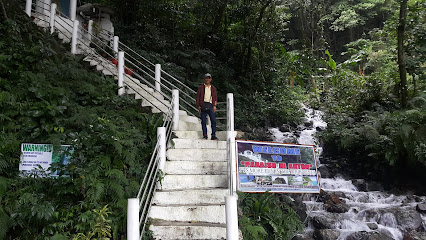
Agua Grande
Discover the natural beauty and tranquility of Agua Grande in Pagudpud, Ilocos Norte – a perfect escape for nature lovers and adventure seekers alike.
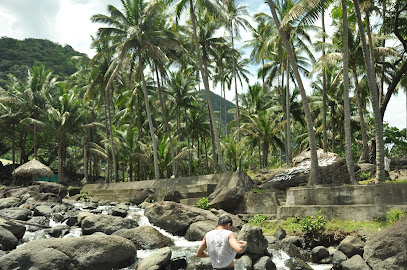
Kabigan Falls
Experience the breathtaking beauty of Kabigan Falls in Pagudpud, a serene escape nestled within lush landscapes and vibrant nature.
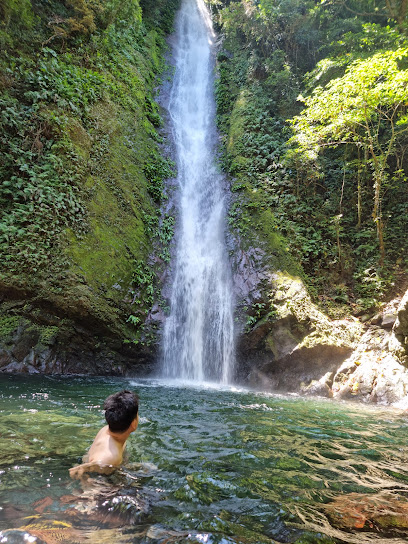
Kalbario-Patapat Natural Park
Explore the breathtaking landscapes and diverse wildlife of Kalbario-Patapat Natural Park in Pagudpud, a natural haven in Ilocos Norte.
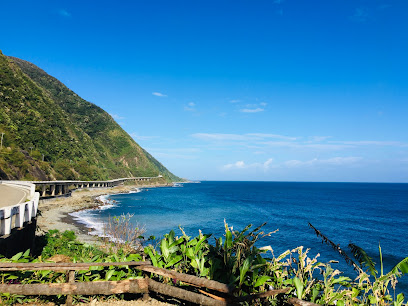
Blue Lagoon
Experience the natural beauty and adventure at Blue Lagoon in Pagudpud, where crystal-clear waters and stunning landscapes await.
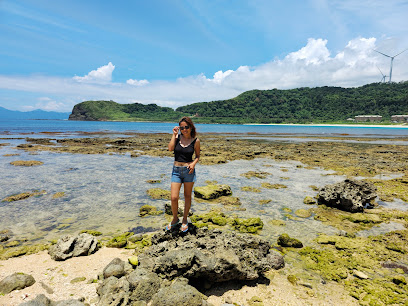
Portabaga Falls Park and Resort
Experience the stunning waterfalls and serene landscapes at Portabaga Falls Park and Resort, a hidden gem in Cagayan, Philippines.
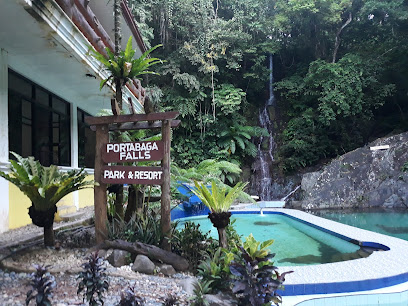
Timmangtang Rock
Discover Timmangtang Rock, Pagudpud's stunning natural monument, where breathtaking views and unique rock formations await your visit.
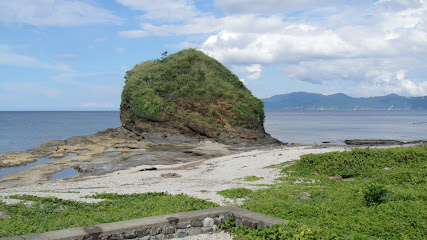
Pagudpud Shell Statue
Discover the beauty of Pagudpud Shell Statue, a stunning cultural landmark nestled along the breathtaking coastline of Ilocos Norte in the Philippines.
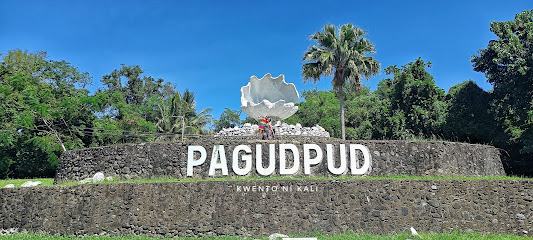
Saud Beach, Pagudpud
Discover the tranquil beauty of Saud Beach in Pagudpud, where white sands and azure waters create the perfect tropical paradise.
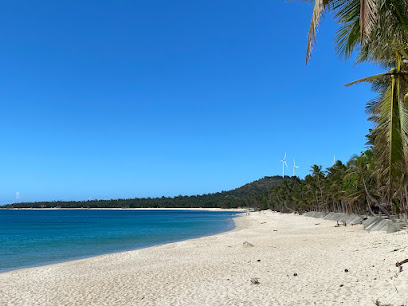
Essential places to dine
BergBlick Restaurant
Discover the flavors of Filipino and German cuisine at BergBlick Restaurant in beautiful Pagudpud.
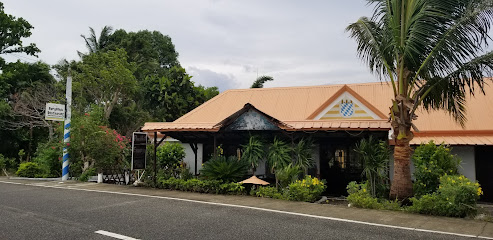
Tartaruga's Hotel and Restaurant
Experience authentic Filipino flavors with stunning coastal views at Tartaruga's Hotel and Restaurant in beautiful Pagudpud.
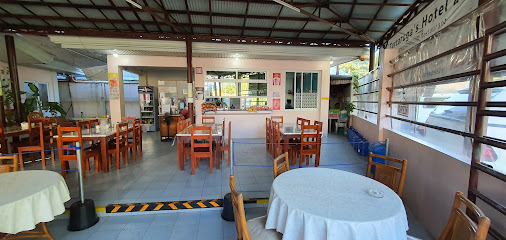
WILAC FOODHOUSE/EMPANADA
Discover authentic Ilocano flavors at Wilac Foodhouse in Pagudpud – home of delicious empanadas and warm hospitality.
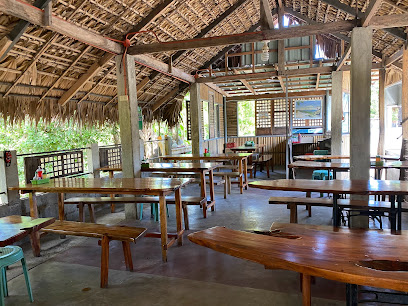
Emohruo Beach Restobar
Discover culinary delights at Emohruo Beach Restobar while enjoying stunning ocean views in beautiful Pagudpud.
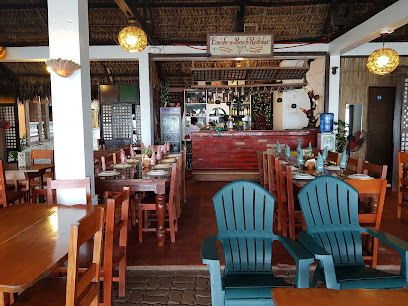
Rosario's Restaurant
Discover authentic Ilocano cuisine at Rosario's Restaurant in Pagudpud—where flavor meets breathtaking views.
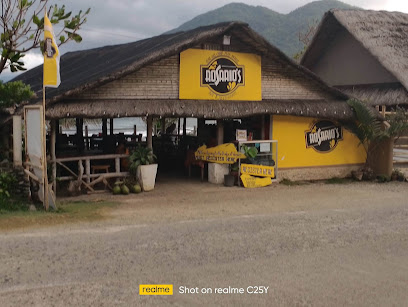
Pao's Diner
Discover authentic Filipino cuisine at Pao's Diner in Pagudpud – where every meal is a celebration of local flavors and warm hospitality.
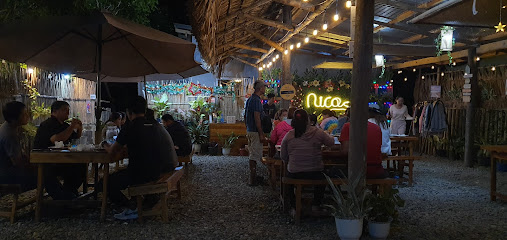
La Cocina de Consuelo
Experience the essence of Ilocano cuisine at La Cocina de Consuelo, where fresh flavors meet breathtaking views in Pagudpud's Blue Lagoon.
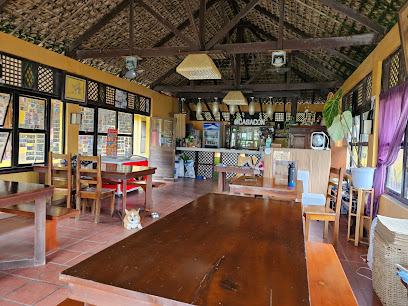
Tabernero's Inn and Restobar
Experience authentic Filipino cuisine at Tabernero's Inn and Restobar in picturesque Pagudpud, where every meal is a celebration of local flavors.
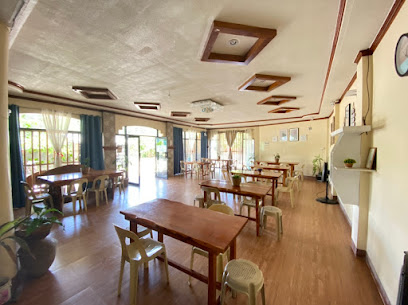
Vis-a-vis Lounge Pagudpud
Experience authentic Ilocano cuisine at Vis-a-vis Lounge Pagudpud – where local flavors meet warm hospitality in a charming setting.
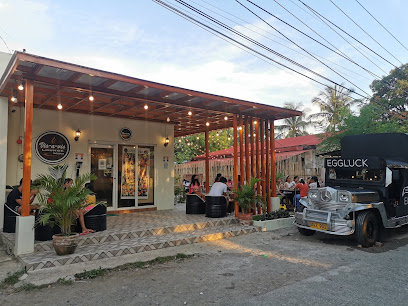
VILLA Izakaya 104 Japanese Bar&restaurant
Experience authentic Japanese cuisine at VILLA Izakaya in Pagudpud – a tranquil escape with delicious sushi and warm hospitality.
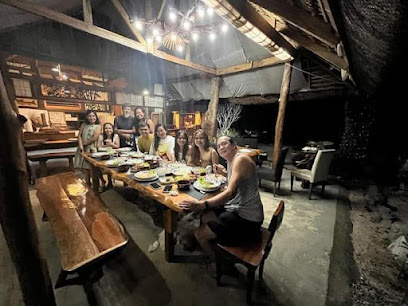
Rainbow Inn Bar & Restaurant
Savor authentic Filipino cuisine at Rainbow Inn Bar & Restaurant in Pagudpud, where vibrant flavors meet stunning views.
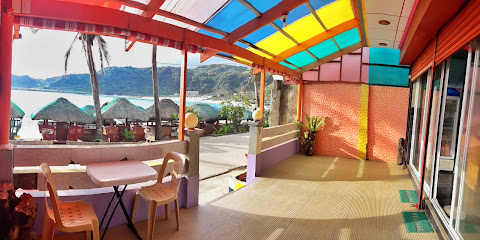
Pannzian Beach and Mountain Resort Restaurant
Experience delightful Filipino cuisine amidst breathtaking views at Pannzian Beach and Mountain Resort Restaurant in Pagudpud.
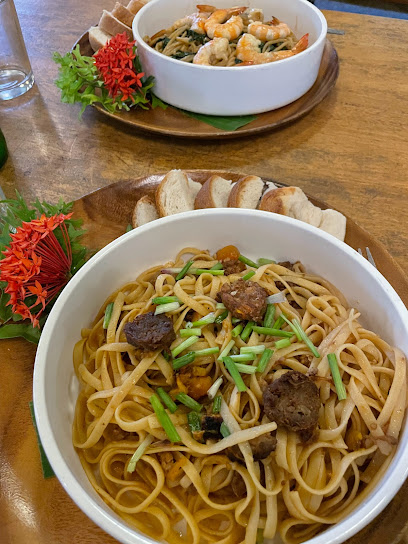
G's Northern Flavours
Experience authentic Ilocano cuisine at G's Northern Flavours in beautiful Pagudpud - where every dish tells a story.
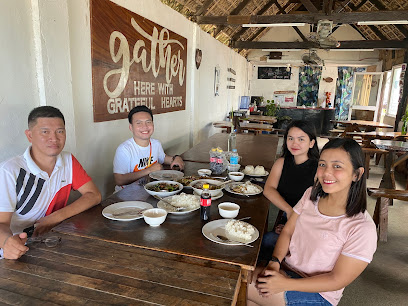
Zephyr Cafe est MMX
Experience family-friendly dining at Zephyr Cafe in Pagudpud - where delicious meals meet warm hospitality amidst stunning coastal beauty.
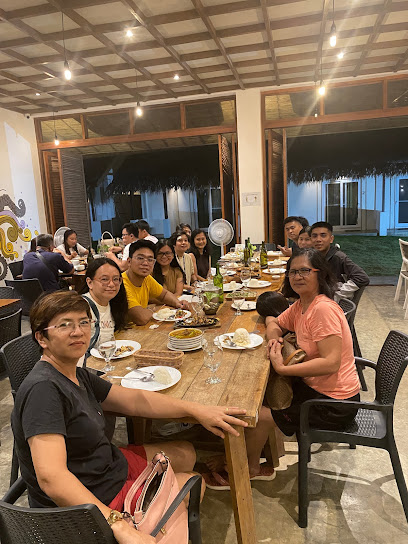
Ayuyang Restaurant
Discover authentic flavors at Ayuyang Restaurant in Pagudpud - where local cuisine meets warm hospitality amidst stunning natural beauty.
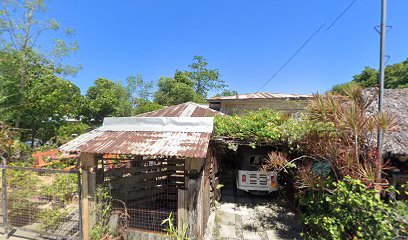
Markets, malls and hidden boutiques
AMAK General Merchandise and Farm Supply
Discover the charm of AMAK General Merchandise and Farm Supply in Pagudpud, where local goods meet friendly service in the heart of Ilocos Norte.
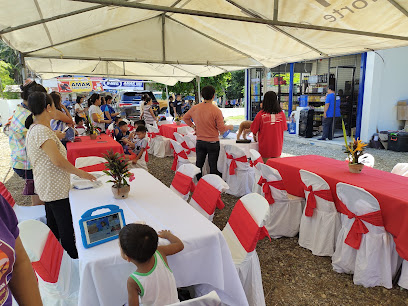
Marnelyn Store
Experience authentic local shopping at Marnelyn Store in Pagudpud, where unique crafts and delicious delicacies await every traveler.
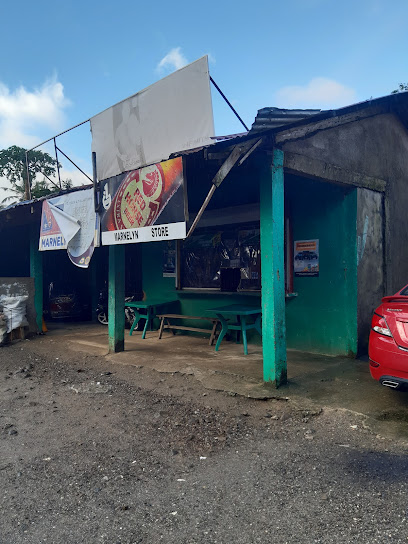
M & B store Station
Discover local flavors and fresh produce at M & B Store Station in Pagudpud, a grocery store that captures the essence of Ilocos Norte.
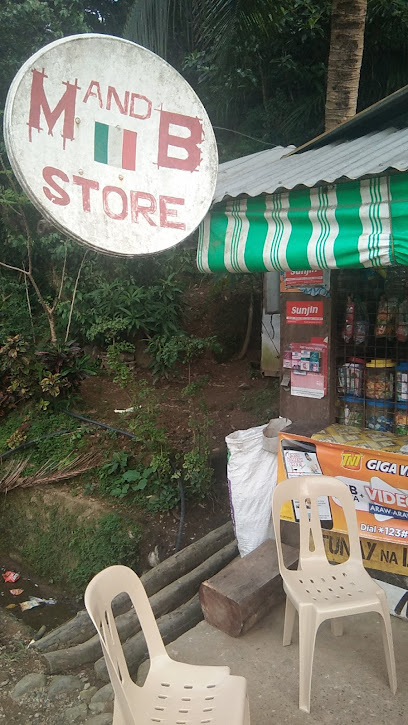
AICEL EXPRESS GENERAL MERCHANDISE
Discover convenience and local charm at AICEL EXPRESS GENERAL MERCHANDISE in Pagudpud, your go-to general store for essentials and souvenirs.
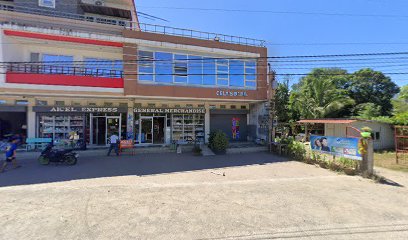
Tourist Souvenir Shops
Discover the vibrant souvenir shops in Pagudpud, where local artisans showcase their crafts and unique treasures await every traveler.
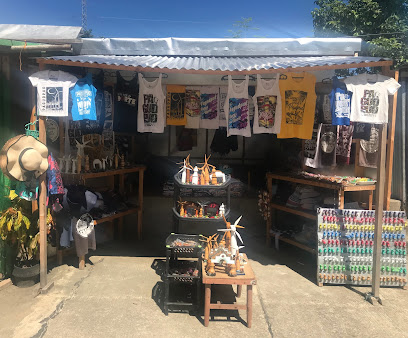
Market Place
Explore Pagudpud's Market Place for a vibrant mix of local crafts, delicious street food, and cultural experiences that capture the essence of Ilocos Norte.
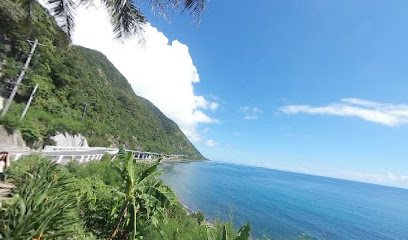
Personal Collection Pagudpud Branch (PC PAGUDPUD)
Explore the essence of Ilocos Norte with authentic local products at Personal Collection Pagudpud Branch, a charming store that celebrates Filipino craftsmanship.

NYXFD Grocery Store
Explore authentic local flavors at NYXFD Grocery Store in Pagudpud—your gateway to the culinary delights of Ilocos Norte.
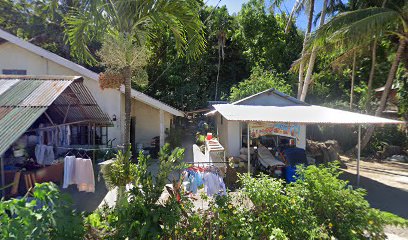
Jinru Sari Sari Store
Discover authentic Filipino flavors and local treasures at Jinru Sari Sari Store in Pagudpud, the heart of Ilocos Norte.
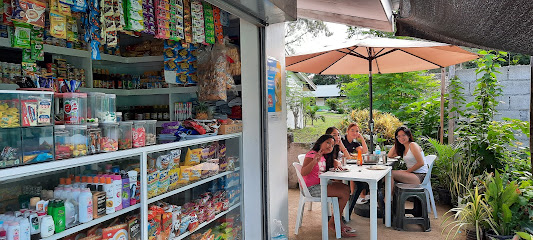
EFREN B. CIMATU SR (EBC) BUILDING
Explore the flavors and culture of Pagudpud at the EFREN B. CIMATU SR (EBC) Building - your local grocery store for authentic Ilocos Norte products.
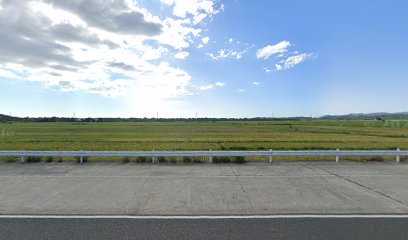
For All Apparels
Discover unique fashion choices at For All Apparels, a charming clothing store in the heart of Pagudpud, Ilocos Norte.
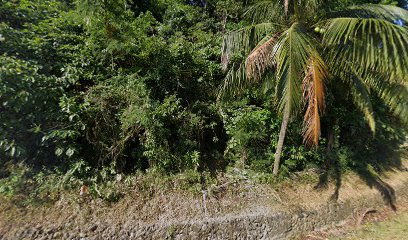
Tita Litz' Variety Store
Explore the essence of Pagudpud at Tita Litz' Variety Store, where local culture and variety meet in a charming general store.
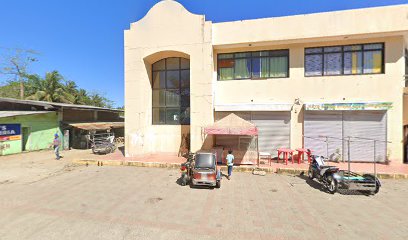
Pascual Novelty Trading
Discover unique local treasures at Pascual Novelty Trading in Pagudpud, your go-to general store for authentic Ilocos souvenirs and crafts.
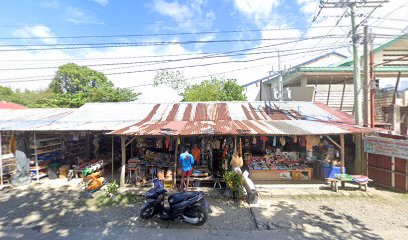
JERICKA ASHLEY STORE
Explore local flavors at Jericka Ashley Store in Pagudpud, your ultimate grocery stop for fresh produce and regional delicacies.
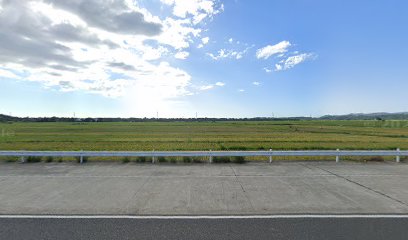
Nanay V's Store
Experience local culture and flavors at Nanay V's Store in Pagudpud, a must-visit destination for unique handicrafts and delicious local treats.
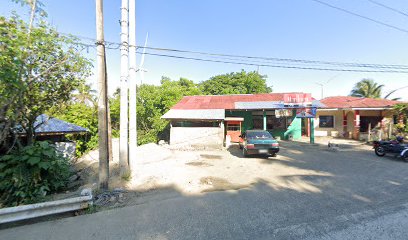
Essential bars & hidden hideouts
Triangle Huts - Resort, Restaurant & Bar
Experience the perfect blend of relaxation and excitement at Triangle Huts, a charming resort, restaurant, and bar in the heart of Pagudpud.
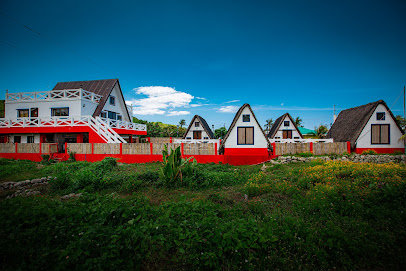
Emohruo Beach Restobar
Experience the tranquil beauty of Pagudpud at Emohruo Beach Restobar, where vibrant flavors meet stunning ocean views.
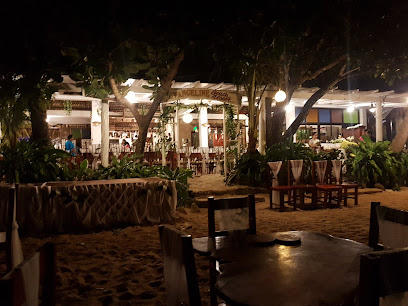
After Five Korean Bar and Grill
Experience authentic Korean cuisine and vibrant nightlife at After Five Korean Bar and Grill in the heart of Pagudpud, Ilocos Norte.
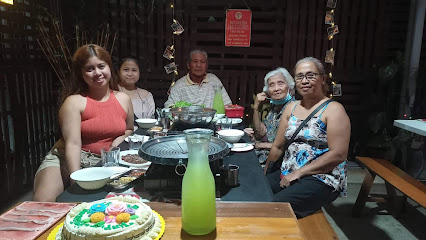
Tabernero's Inn and Restobar
Discover the taste of Ilocos at Tabernero's Inn and Restobar, where authentic Filipino cuisine meets breathtaking coastal views.
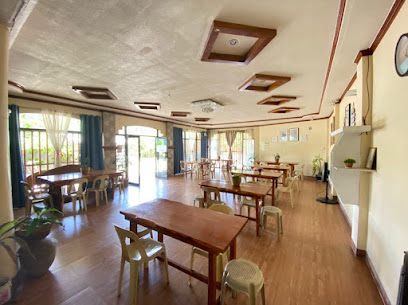
Vis-a-vis Lounge Pagudpud
Experience authentic Filipino cuisine amidst the stunning landscapes of Pagudpud at Vis-a-vis Lounge, a culinary treasure in Ilocos Norte.
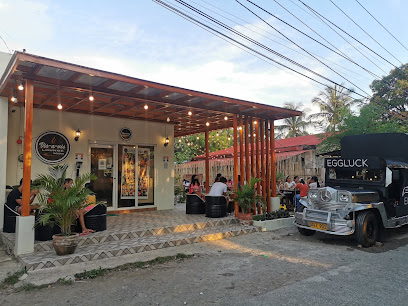
Coco Bar & Grill
Experience the flavors of the tropics at Coco Bar & Grill in Pagudpud - where relaxation meets culinary delight in an enchanting seaside setting.
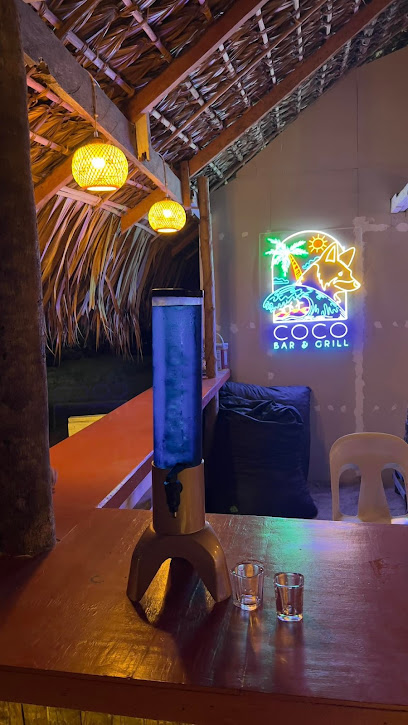
VILLA Izakaya 104 Japanese Bar&restaurant
Experience exquisite Japanese cuisine at VILLA Izakaya in Pagudpud, where tradition meets tranquility in every delicious bite.
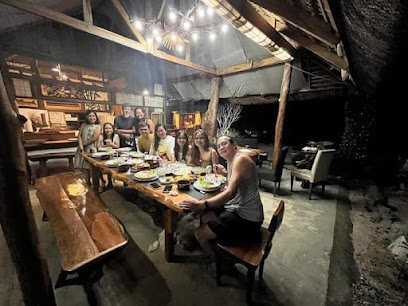
Rainbow Inn Bar & Restaurant
Experience a culinary journey at Rainbow Inn Bar & Restaurant in Pagudpud, where local flavors meet stunning coastal views.
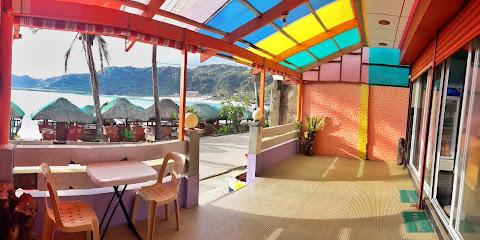
Triple 8 Bar
Experience the vibrant nightlife of Bangui at Triple 8 Bar, where refreshing drinks and a warm atmosphere await you.
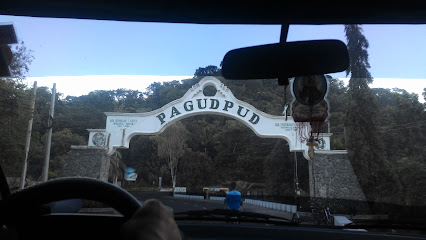
B-side Chill Hub
Discover the flavors of Ilocos Norte at B-side Chill Hub, a cozy restaurant in Pagudpud perfect for relaxation and local cuisine.
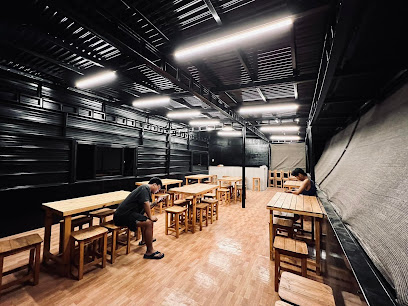
Koozi Place Milktea House Pagudpud
Discover Koozi Place in Pagudpud, where delightful milk tea and tasty snacks await to refresh your travel adventures in Ilocos Norte.
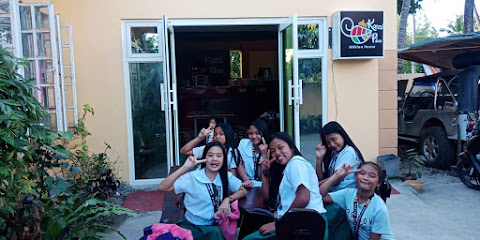
Hera Bar Cafe Pagudpud
Experience the vibrant nightlife at Hera Bar Cafe Pagudpud - a perfect blend of local flavors, refreshing drinks, and a lively atmosphere.
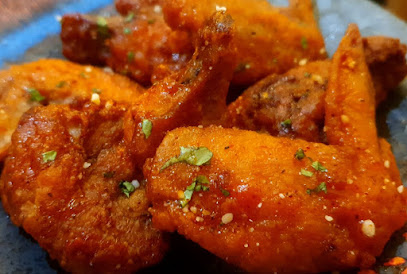
Pebble Beach Bar & Grill
Discover the flavors of Ilocos Norte at Pebble Beach Bar & Grill, where fresh seafood meets stunning ocean views in an unforgettable dining experience.
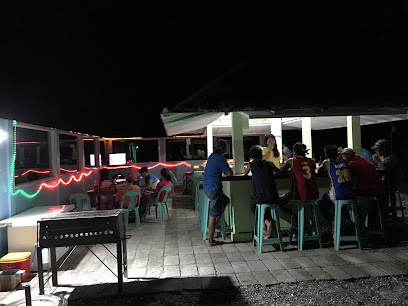
The Office PH
Experience the vibrant tropical atmosphere at The Office PH in Pagudpud, where relaxation meets stunning beach views and refreshing drinks.
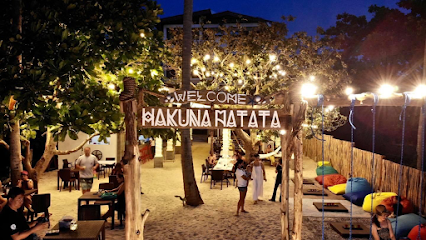
Local Phrases about Pagudpud
-
- HelloKamusta
[ka-mus-ta] - GoodbyePaalam
[pa-a-lam] - YesOo
[o-o] - NoHindi
[hin-di] - Please/You're welcomePaki
[pa-ki] - Thank youSalamat
[sa-la-mat] - Excuse me/SorryPasensya
[pa-sen-sya] - How are you?Kamusta ka?
[ka-mus-ta ka?] - Fine. And you?Mabuti. Ikaw?
[ma-bu-ti i-kaw?] - Do you speak English?Marunong ka ba mag-Ingles?
[ma-ru-nong ka ba mag-ing-gles?] - I don't understandHindi ko maintindihan
[hin-di ko main-tin-di-han]
- HelloKamusta
-
- I'd like to see the menu, pleaseGusto ko sanang makita ang menu, pakiusap
[gus-to ko sa-nang ma-ki-ta ang me-nu, pa-ki-u-sap] - I don't eat meatHindi ako kumakain ng karne
[hin-di a-ko ku-ma-ka-in ng kar-ne] - Cheers!Mabuhay!
[ma-bu-hay] - I would like to pay, pleaseGusto kong magbayad, pakiusap
[gus-to kong mag-ba-ya-ad, pa-ki-u-sap]
- I'd like to see the menu, pleaseGusto ko sanang makita ang menu, pakiusap
-
- Help!Tulong!
[tu-long] - Go away!Lumayo ka!
[lu-ma-yo ka!] - Call the Police!Tawagin mo ang pulis!
[ta-wa-gin mo ang pu-lis!] - Call a doctor!Tawagin mo ang doktor!
[ta-wa-gin mo ang dok-tor!] - I'm lostNawawala ako
[na-wa-wa-la a-ko] - I'm illMay sakit ako
[may sa-kit a-ko]
- Help!Tulong!
-
- I'd like to buy...Gusto ko bumili ng...
[gus-to ko bu-mi-li ng...] - I'm just lookingNaglalakad lang ako
[nag-la-lakad lang a-ko] - How much is it?Magkano ito?
[mag-ka-no i-to?] - That's too expensiveMasyadong mahal iyan
[ma-sya-dong ma-hal i-yan] - Can you lower the price?Pwede mo bang ibaba ang presyo?
[pwe-de mo bang i-ba-ba ang pres-yo?]
- I'd like to buy...Gusto ko bumili ng...
-
- What time is it?Anong oras na?
[a-nong o-ras na?] - It's one o'clockAlas-uno na
[a-las-u-no na] - Half past (10)Ganap ng (sampu) y medya
[ga-nap ng (sam-pu) y med-ya] - MorningUmaga
[u-ma-ga] - AfternoonHapon
[ha-pon] - EveningGabi
[ga-bi] - YesterdayKahapon
[ka-ha-pon] - TodayNgayon
[nga-yon] - TomorrowBukas
[bu-kas] - 1Isa
[i-sa] - 2Dalawa
[da-la-wa] - 3Tatlo
[tat-lo] - 4Apat
[a-pat] - 5Lima
[li-ma] - 6Anim
[a-nim] - 7Pito
[pi-to] - 8Walo
[wa-lo] - 9Siyam
[si-yam] - 10Sampu
[sam-pu]
- What time is it?Anong oras na?
-
- Where's a/the...?Nasaan ang...?
[na-sa-an ang...?] - What's the address?Ano ang address?
[a-no ang ad-dres?] - Can you show me (on the map)?Pwede mo bang ipakita sa akin (sa mapa)?
[pwe-de mo bang i-pa-ki-ta sa a-kin (sa ma-pa)?] - When's the next (bus)?Kailan ang susunod na (bus)?
[kai-lan ang su-su-nod na (bus)?] - A ticket (to ....)Isang tiket (papuntang ....)
[i-sang ti-ket (pa-pun-tang ....)]
- Where's a/the...?Nasaan ang...?
History of Pagudpud
-
The history of Pagudpud dates back to pre-colonial times when it was inhabited by indigenous tribes. These early settlers thrived on fishing, farming, and trading with neighboring communities. The region's rich natural resources and strategic coastal location made it an ideal spot for early human settlement.
-
In the 16th century, Spanish explorers arrived in the Philippines, marking the beginning of the Spanish Colonial Era. Pagudpud, like much of the archipelago, fell under Spanish rule. The Spaniards introduced Christianity and built churches, some of which still stand today as historical landmarks. This period also saw the establishment of new governance structures, influencing the local culture and way of life.
-
During World War II, Pagudpud and the surrounding areas were not spared from the conflict. The town witnessed several skirmishes between Japanese forces and Filipino guerrillas. The local population played a significant role in resisting the Japanese occupation, showcasing their resilience and patriotism. Remnants of this turbulent period are still evident in some parts of the region.
-
After World War II, Pagudpud began to rebuild and recover from the destruction. The post-war period saw significant investments in infrastructure, including roads and bridges, which facilitated better connectivity with other parts of Luzon. This era also marked the beginning of Pagudpud's recognition as a potential tourist destination, with its pristine beaches and scenic landscapes attracting visitors.
-
Pagudpud's culture is a blend of indigenous traditions, Spanish influences, and contemporary Filipino practices. The town celebrates various festivals throughout the year, such as the annual 'Tingguians Festival,' which showcases traditional dances, music, and crafts. Local cuisine, rich in seafood and distinctive Ilocano flavors, also reflects the area's cultural heritage.
-
Today, Pagudpud is known for its stunning beaches, such as Saud Beach and Blue Lagoon, which attract tourists from all over the world. The town has developed eco-tourism initiatives to preserve its natural beauty while providing sustainable livelihoods for its residents. Modern amenities and accommodations have sprung up, blending seamlessly with the town's historical and cultural backdrop.
Pagudpud Essentials
-
Pagudpud is located in the northernmost part of Luzon in the Philippines. The nearest major airport is Laoag International Airport, which is about 80 kilometers away. From Laoag, you can take a bus or a private vehicle to Pagudpud. The bus journey typically takes around 1.5 to 2 hours. Another option is to drive directly from Manila, which is approximately 560 kilometers away, and would take around 10-12 hours by car.
-
Pagudpud is a relatively small town, so getting around is quite straightforward. Tricycles are the most common mode of local transport and are available for short distances. For exploring nearby attractions, you can rent a motorbike or a car. Buses and jeepneys are available for longer distances and trips to nearby towns. Many resorts also offer shuttle services to key tourist spots.
-
The official currency in Pagudpud, like the rest of the Philippines, is the Philippine Peso (PHP). Credit cards are accepted in some hotels, restaurants, and shops, but it's advisable to carry cash, especially in smaller establishments and rural areas. ATMs are available in Pagudpud, but it's wise to withdraw sufficient cash before traveling to more remote areas to ensure you have enough funds.
-
Pagudpud is generally a safe destination for tourists. However, as with any travel destination, it's important to take standard precautions. Avoid walking alone late at night, especially in secluded areas. While there are no specific high-crime areas targeting tourists, it’s always best to stay vigilant and aware of your surroundings. Keep an eye on your belongings in crowded places.
-
In case of emergency, dial 911 for immediate assistance. The local police station and medical facilities are available in Pagudpud. It is recommended to have travel insurance that covers medical emergencies. For minor health issues, there are pharmacies in the town where you can purchase over-the-counter medications. The nearest hospital is in Laoag, which is about 1.5 to 2 hours away by road.
-
Fashion: Do dress modestly, especially when visiting religious sites. Avoid wearing revealing clothing. Religion: Do respect local customs and traditions. Always cover your head when entering churches. Public Transport: Do be respectful and give up your seat to elderly passengers. Don’t eat or drink on public transport. Greetings: Do greet people with a smile and a slight nod of the head. A friendly 'hello' or 'kamusta' is always appreciated. Eating & Drinking: Do try local delicacies and accept food offerings graciously. Don’t refuse hospitality, as it is considered impolite.
-
To experience Pagudpud like a local, visit the local markets where you can buy fresh produce and traditional Filipino goods. Engage with locals, as they are often friendly and willing to share stories about the town's history and culture. Don’t miss visiting the iconic Bangui Windmills and the scenic Patapat Viaduct. For a unique experience, take a dip in the Blue Lagoon or visit the Kabigan Falls for a refreshing swim.
Trending Landmarks in Pagudpud
-
Patapat Viaduct
-
Bantay Abot Cave
-
Saud Beach
-
Casa Victoria
-
Palm Grove Saud Holiday Complex
-
Casa Consuelo
-
Kingfisher Resort
-
Municipal Beach Park
-
Villa Andrea Beach Resort Pagudpud
-
Polaris Beach Resort
-
Caunayan Point (Little Batanes of the North)
-
Natsuca Beach Resort in Pagudpud
-
Jun & Carol Beach Resort
-
Paraiso Ni Anton
-
Evangeline Beach Resort
Nearby Cities to Pagudpud
-
Things To Do in Vigan
-
Things To Do in Sagada
-
Things To Do in Batanes
-
Things To Do in Baguio
-
Things To Do in Angeles City
-
Things To Do in Subic
-
Things To Do in Manila
-
Things To Do in Tagaytay
-
Things To Do in Legazpi
-
Things To Do in Boracay
-
Things To Do in Cebu City
-
Things To Do in Puerto Princesa
-
Things To Do in Bohol
-
Things To Do in Palawan
-
Things To Do in Okinawa









